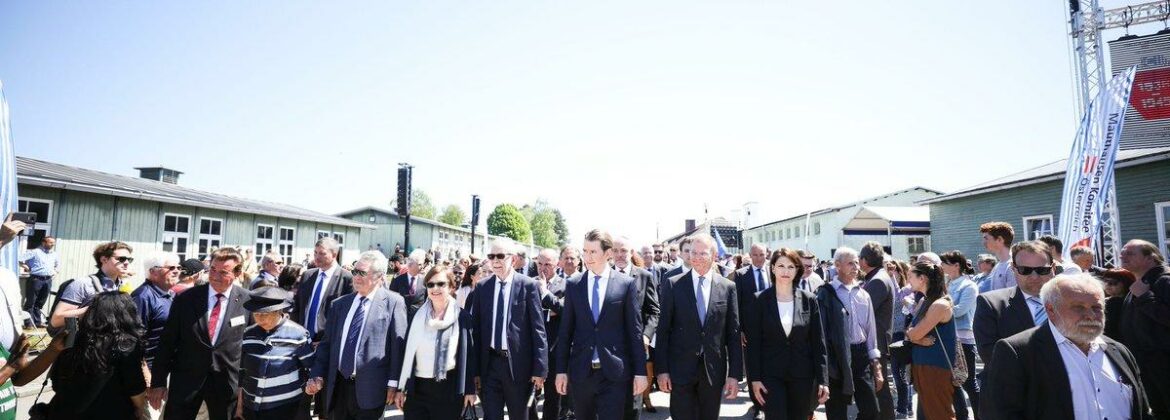Thousands of visitors have attended the 73rd anniversary of the liberation of the Mauthausen concentration camp. The commemoration event was also attented by the Austrian President of the State and the Federal Government’s Minor Officer. The three-member delegation of the Holocaust Memorial Center was led by Prof. Dr. Szita Szalbocs.
As part of the commemoration ceremony, the director of the Memorial Center said the following speech:
Dear survivors, dear all!
The topic refugees and the homeland makes me, as a Hungarian, think instinctively of the suffering and hardship of the European Jews, in particular the Hungarian ones, during the Second World War. Almost a million Jewish people in Hungary did not believe – or hardly believed – that, what had happened to the Jewish populations of other countries, could also happen to them. Most of them thought that if it was to happen, they would probably be protected by the Hungarian Government or by the majority population.
The Jews of Hungary have always been very patriotic. Their cohabitation with the majority was historically successful and brought fruitful results in many areas. In the beginning of the 1940s, many Jewish people from Austria, Germany, Poland, Slovakia, and other countries fled to Hungary; most of them found refuge there. In these days, the horrific news about the atrocious deeds and mass murders of the Einsatzgruppen multiplied, but these messages were mostly deemed not credible.

The occupation of Hungary by the German Wehrmacht was a catastrophic setback for the entire Hungarian and in particular Jewish population. After 19 March 1944, thousands of Jewish people were plundered and deported by Hitler’s organisations of violence, after having been put on lists. The others were forced to wear a Star of David on their clothes, to be recognisable as Jews, or were concentrated in miserable ghettos on the edge of towns. Many of them realised only then: they should have fled right after 1938. They should have fled to a place where no exclusion, no stigmatisation, no racism was tolerated.
The unsuccessful Conference of Evian, as well as a sense of belonging, patriotism, and private property, may have prevented many from fleeing. In the meantime, Hitler had conquered almost all of Europe, and the chance for a rescue by fleeing overseas became ever more remote. The Eichmann-Commando deported 437,000 Jews in the space of eight weeks from the Hungarian province to Auschwitz-Birkenau – with Hungarian help. Only a few hundred people could save themselves and were able to flee with help from others, mostly to Romania and to the Balkans. The Jewish population of the Hungarian province was largely annihilated, and even the survivors, the returnees, suffered a terrible fate. They had lost their property and former livelihoods and had to rebuild their lives from the ground up. Many were starving. And in the region, renewed hate rose against them, there were renewed antisemitic attacks. Anti-Jewish emotions rose to the surface and led to marginalisation, to pogroms. As a consequence, many Hungarian Jews had to look for another homeland and found it in the Jewish State that was founded 70 years ago, in Israel.
In the autumn of 1956, people in Hungary were once again forced to choose between flight and homeland. Back then, I was a schoolboy. I saw the masses fleeing towards Austria, the families fleeing from the Soviet tanks. We, too, were afraid. But my family decided to stay, to remain in the homeland. Today, we have gathered to announce:
We will work for peace, for human rights, for the sovereign equality of all peoples and for a safe future for all families.
